The Economics and Statistics Division maintains archives of previous publications for accountability purposes, but makes no updates to keep these documents current with the latest data revisions from Statistics Canada. As a result, information in older documents may not be accurate. Please exercise caution when referring to older documents. For the latest information and historical data, please contact the individual listed to the right.
<--- Return to Archive
For additional information relating to this article, please contact:
January 22, 2020ANALYSIS OF NOVA SCOTIA'S CONSUMER PRICE INDEX FOR ANNUAL 2019 CPI inflation in Nova Scotia was 1.6 per cent for the year 2019, below the national increase of 1.9 per cent. For 2019, the largest increase in the CPI occurred in British Columbia at 2.3 per cent and the lowest was in Newfoundland and Labrador at 1.0 per cent. For Canada and all provinces, inflation rates were lower in 2019 than 2018.
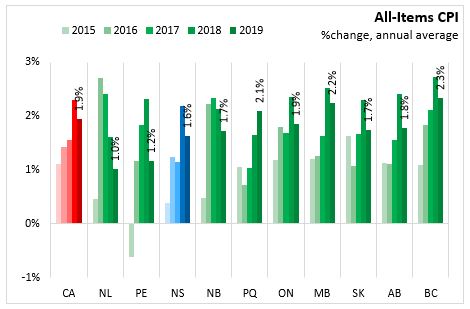
The CPI excluding food and energy increased 1.8 per cent in Nova Scotia in 2019 and rose 2.0 per cent in Canada. The largest increase for the CPI excluding food and energy was in Quebec at 2.5 per cent while the smallest increase was in Newfoundland and Labrador (+1.1%).

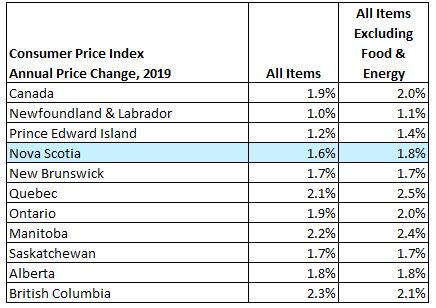
Major Components for 2018
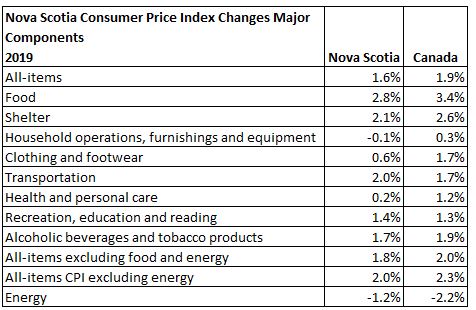
For Nova Scotia, all the major components of the consumer price index increased except household operations, furnishings and equipment(-0.1%) in 2019. After a decline in 2017, food price in Nova Scotia rose 0.3 per cent in 2018 and 2.8 per cent in 2019. Shelter prices increased 2.1 per cent in Nova Scotia with increases in owned accommodations (+3.2%) and insurance (+6.5%) and rented accommodation rising 0.8 per cent. Clothing and footwear prices was up 0.6 per cent in Nova Scotia in 2018, but the clothing and footwear index (100.2) remains similar to the base year of 2002. Transportation costs were up 2.0 per cent with a rise in cost of purchase and lease of passenger vehicles (+2.8%) and lower gasoline prices (-4.1%). Inflation decelerated for health and personal care; recreation, education, and reading; and alcoholic beverages and tobacco products compared to 2018 rates.
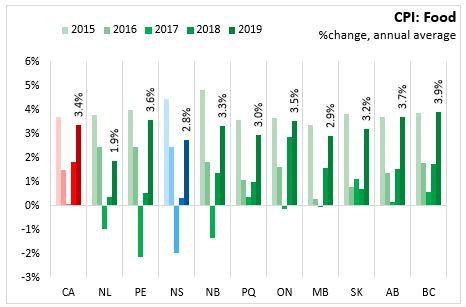
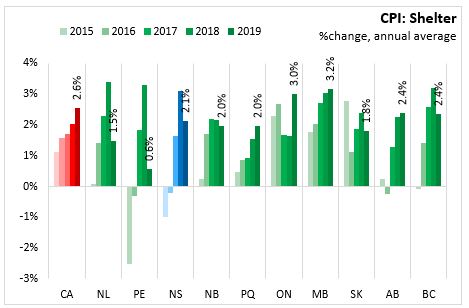

Source: Statistics Canada. Table 18-10-0005-01 Consumer Price Index, annual average, not seasonally adjusted
<--- Return to Archive